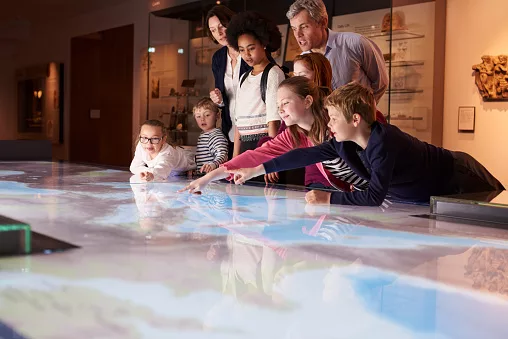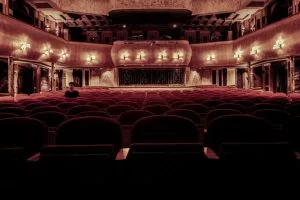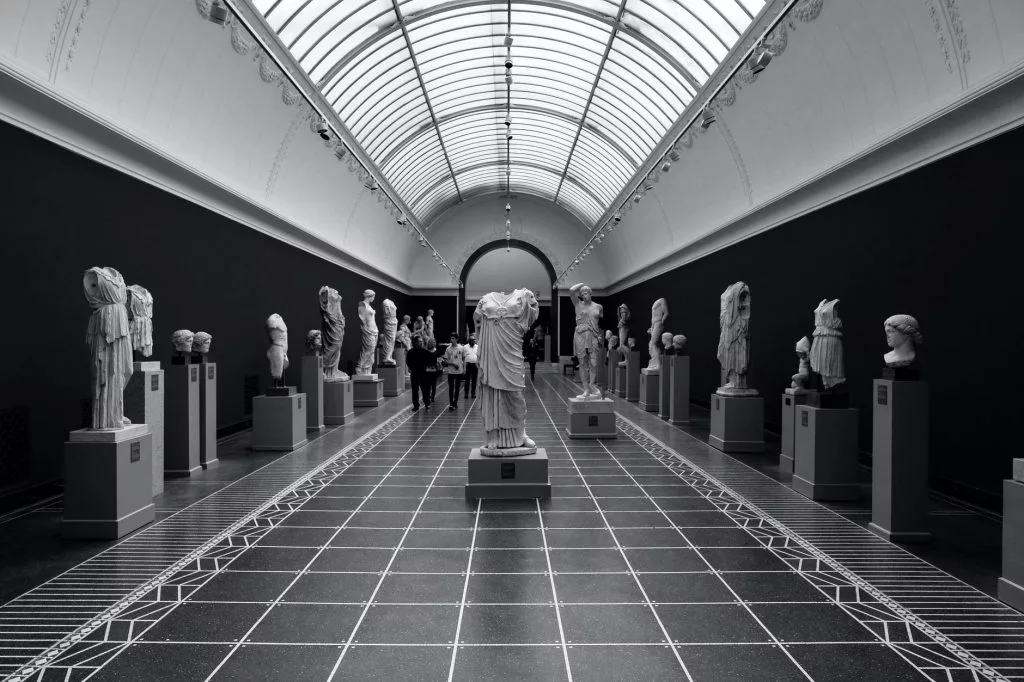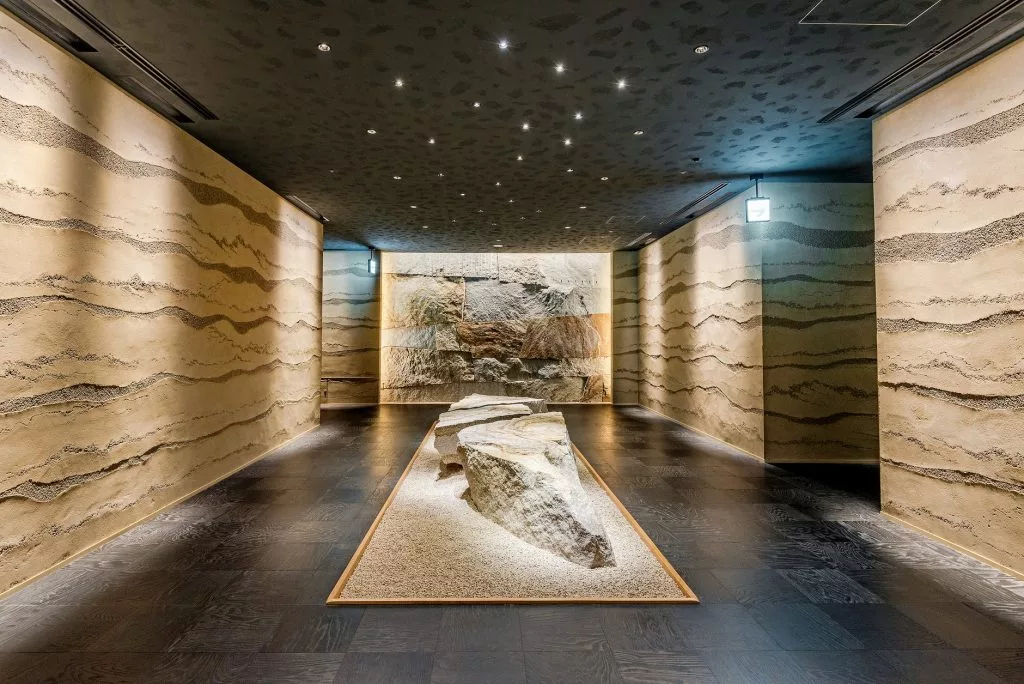
Museum fundraising is more important than ever. Museums must focus their efforts on working with private supporters, museum members, major donors, friends groups, local communities, and corporate partnerships. Finding creative ways to succeed in museum fundraising while inspiring supporters can be challenging. Beyond requesting donations, perhaps your museum will engage community members to help raise funds by hosting fun and educational museum fundraising events and activities.

Understanding Fundraising for Museums
Museum fundraising is vital to ensuring the long-term sustainability and success of cultural institutions. It involves various activities and strategies to secure financial support from individuals, corporations, foundations, and government agencies. Effective museum fundraising requires a deep understanding of the institution’s mission, goals, and target audience, as well as the ability to communicate its value and impact to potential donors.
Fundraising efforts are not just about asking for money; they are about building relationships and creating a compelling narrative that resonates with supporters. By clearly articulating the museum’s mission and showcasing the impact of its work, museums can inspire contributions and foster a community of loyal supporters.

Identifying Funding Needs
Institutions must first identify their funding needs to develop a successful museum fundraising strategy. This involves thoroughly analyzing their financial situation, including their income, expenses, and assets. By understanding their current financial standing, museums can pinpoint areas where additional funding is required.
Museums must consider their short-term and long-term goals. For example, a museum may need immediate funds to restore a damaged artwork or long-term support to develop a new wing. By clearly defining and prioritizing these needs, museums can create targeted fundraising campaigns that resonate with stakeholders.
A well-defined fundraising strategy will ensure that the resources raised are allocated effectively to achieve the museum’s goals. This strategic approach is key to successful fundraising and the institution’s overall sustainability.

10+ Museum Fundraising Ideas that Support Your Mission
Mission-driven fundraising is important for many organizations and imperative for successful museum fundraising as it engages your patrons in support of your museum. What’s more – it’s generally easy for museums to do. Here are ten museum fundraising ideas to get you started.
1. Host ‘Travel with the Museum’ Programs
Offering special travel experiences could be a unique fundraising idea for your museum to embrace. People are always looking for something new and unique and are willing to pay a premium when doing so with an expert in the field. Travel across the city or globe with curators and art historians to explore artistic treasures. Of course, you’ll want to price travel packages to include a required donation to the museum. Consider offering the travel experience on Airbnb or other platforms to gain a larger audience.
2. Offer or Boost Museum Memberships or Patron Programs
Members are an important aspect of fundraising for many museums. Museum members or patrons are committed donors who pay an annual or monthly fee to support ongoing museum projects and exhibits. Various types of memberships are generally offered with different benefits and donor levels. Examples are family memberships, VIP or Patron memberships, which include special perks, and memberships that benefit a specific period or category of art within your museum.

Museum members receive benefits in exchange for their donations. Member benefits can include:
- Free museum admission (always!)
- Discounted or included guest tickets and passes
- Members-only hours and previews for major exhibitions
- Museum store discounts
- Members-only parties or receptions
- Discounted art classes and tours
3. Host Live Performances

Give people a reason to come out and see a new exhibit. Poetry, dance, music, and other performances may be planned in concert with new exhibitions and installations at the museum. Performances and gallery talks funded through corporate sponsorships provide local businesses and corporations a great way to get involved.
4. Offer Special Programs for Schools and Children
School programs at museums enable students to make connections and develop an understanding of art creatively and historically. The experiences K-12 students are offered can include facilitated visits with docents, museum artists, poets, curators, and art donors. After exploring and discussing different paintings and sculptures in the galleries, students create unique works to take home. These special teachings can ignite curiosity and cultivate academic and personal skills in young children.

School programs may be offered on a sliding fee scale. Find larger donations in fundraising for museums through specific campaigns for school programs:
- Corporate sponsorships targeted for school programs
- Matched employee donations within corporate sponsorships
- Donors with a special interest in education
- Fundraising for museums through parent and extended family donations
- Partnerships between schools and museums on school fundraising events
Another fundraising opportunity school programs provide museums is found in how they enrich children. Donors see and value the enrichment and understand how their donations are used. Invite them to join school programs as volunteers and watch children find a new world.
5. Organize a Fundraising Gala Event

Many museums are renowned not only for their art collection but for their grand buildings. Fundraising ideas for small museums and large ones are found in their architectural spaces ideal for events. Large corporate dinners, themed galas, meetings, and film screenings are a few ideas.
- For elegantly catered events from business meetings to intimate dinners and cocktail receptions, museums offer the perfect setting.
- With various spaces equipped with state-of-the-art media, museums are ideal locations to host a concert. Expert museum teams focus on technology needs and create the perfect audience experience.
- Board meetings and day-long staff retreats held under the same roof as a world-class art collection inspire teams.
6. Screen Independent or Special Films

Independent films provide opportunities to experience important aspects of visual culture. Sell tickets to the film screening as well as offer healthy refreshments for sale. Seek sponsor funding for films through corporate and special donors.
Independent film screening could include any of these options:
- Foreign films
- Critically-acclaimed documentaries from around the world
- Independent films with discussions following
- Films about artists and art movements
- Visually splendid films for adults and children
- Video productions and films by local artists
7. Launch an Online Museum Store
Online merchandise sales are a great way to raise money for museums. An opportunity to sell tasteful products on a national or international scale can raise much-needed funds and offer those who live far away a great way to give. Merchandise options for museums include:
- Artbooks – lavishly illustrated books and narrated audiobooks are popular
- Apparel of paintings such as ties, t-shirts, and scarves
- Tote bags to bring beauty to markets
- Mugs (travel mugs and ceramic mugs) to contemplate art over coffee
- Learn to paint kits with everything a young painter needs to create masterpieces: brushes, color washable paints, paper, instructions, and ideas
- Umbrellas to brighten any rainy day with paintings of Monet’s water lilies overhead
- Art prints of paintings in your museum and housed around the world
- Add your museum logo to some of these items for nonprofit branding
Find out how to start an online store for nonprofits and create beautiful, custom merchandise and accessories.
8. Offer Special Museum Tours and Lectures
The museum can host visiting lecture series throughout the year. Talks by artists, curators, and other experts from various scholarly fields will illuminate your exhibitions and raise funds.
Offer a monthly Lunch Lecture series to local business people where they can enjoy their lunch hour and an educational experience with art. Charge admission (or request a minimum donation) before the presentation. Encourage guests to register in advance (especially if there is limited seating) for the lecture series using event ticketing software. This series could include book readings and art history lectures featuring a different artist each month. Negotiate food discounts or donated lunches from local businesses if they choose to come on board as the monthly corporate sponsor. This minimizes your out-of-pocket expenses, so the museum keeps a larger percentage of the admission fee.

Fundraising for museums would not be complete without smart discussions of current exhibitions led by docents. Bring 30-minute guided tours that provide insight into history, methods, and influences. Drop-in tours may be held on certain days of the month. Private tours offered to groups as a corporate sponsorship benefit are attractive. These special tours bring new donors and volunteers to the museum fundraising scene. Tours held in conjunction with open houses and wine-tasting fundraisers raise even more.
9. Provide Art Classes with Local Artists

Introduce adults to the fundamentals of drawing or acrylic painting. Provide the practice of various approaches to charcoal, pastel, or paint from a live model. Help them learn how material, form, and space define sculpture. Offering a variety of art and art education classes is a wonderful museum fundraising idea. Students often become ambassadors and volunteers of museums through classes. Consider introducing a crowdfunding event with an art focus involving your students and alumni.
10. Build New Corporate and Community Partnerships

Corporations and businesses grant money to museums that show their ability to create corporate partnerships. Think about what you can offer a corporation, as a benefit of sponsorship. The best corporate fundraising efforts generally include a special event. Hosting fundraising events helps corporations to share the campaign with employees who feel proud to work for a company contributing to charitable causes. So consider creating a corporate partnership, and offer their employees special events and museum perks.
Maximizing Donations
Maximizing donations is a critical aspect of successful museum fundraising. By creating a positive and rewarding experience for donors, museums can foster long-term support and loyalty, thus maximizing fundraising potential.
Raise Funds by Offering Unique Experiences
One effective strategy is to offer unique experiences to donors. These experiences can create excitement and engagement, making donors feel valued and appreciated. Recognizing and celebrating donors’ contributions can further strengthen their connection to the museum.
For example, museums can offer special tours that provide behind-the-scenes access to their collections or exhibitions. These exclusive tours are led by museum curators or invited experts and offer insights and stories not available to the general public.
Partnering with local artists to offer exclusive classes is another great fundraiser for museums. These events can provide hands-on experiences where participants can learn new skills and techniques directly from the artists.
Define Your Museum Brand and Message
As with all nonprofit fundraising, museums need to start with the foundation of strong fundraising – a clear, concise message and brand. This means crafting a unique appeal, defining clear fundraising goals, making a convincing case that addresses your museum’s needs, and showcasing the impact of your work.

Defining and clarifying your fundraising ask may seem simple. You need more money to run the museum, right? With so much competition for funding, you’ll need to do better than that. Museums must sell their message of support by defining their goals and priorities and saying what makes them uniquely positioned to handle the problem. After that, the fundraising strategy will become more clear and more focused.
Read more on defining your nonprofit’s brand.
Conclusions on Museum Fundraising
Museums are wonderful places to bring businesses, artists, schools, and community members together. Teaching people about art and art history is an opportunity to inspire others and feel rewarded. Inspiring supporters to help with the high costs of artwork restorations, installations, and museum management is necessary. Getting people involved with art through hosting museum fundraising events encourages supporters to become active members of your museum and allows you to increase fundraising dollars raised year after year.

![5 Best PTO & School Fundraising Catalog Companies [2024-25 Yr.] 5 Best PTO & School Fundraising Catalog Companies [2024-25 Yr.]](https://www.dojiggy.com/files/sites/164/2023/08/6-Best-School-Fundraising-Catalog-Companies-jpg-271x282.webp)

